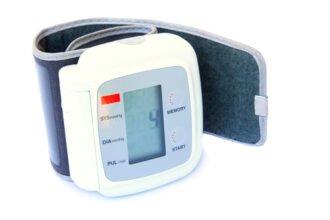Voice recognition is getting there, but it’s not there yet.
The Boston Globe (Automated agent will aid enrollees in Medicare) describes Humana’s use of voice recognition technology to sign up patients for Medicare Part D drug benefit plans. The computer asks the caller a series of questions and interacts sort of like a human being. But actually, there’s a bit of Wizard of Oz involved:
Voice recognition is getting there, but it’s not there yet.
The Boston Globe (Automated agent will aid enrollees in Medicare) describes Humana’s use of voice recognition technology to sign up patients for Medicare Part D drug benefit plans. The computer asks the caller a series of questions and interacts sort of like a human being. But actually, there’s a bit of Wizard of Oz involved:
When the system needs help, it routes the question and a recording of the consumer’s answer to an agent with headphones who types in what the caller said. The agents can handle 700 questions an hour in this way, all taken out of context, said Fox.
“They only hear snippets of calls and their job is just to derive the intent of the individual portion of the calls,’’ he said. The callers never know that a person has intervened.
How would you like a job with 700 out of context questions per hour? I bet those folks must be great conversationalists with their spouses when they get home from work!
Even the contrived excerpt from the company’s PR folks made me gag. Here’s a sample of the dialog between a user “Bernard” and the computer “Interactions” as Bernard provides his name:
BERNARD: B -as in Boston. E as in Edward. R as in Ronald. N as in Nathan. A as in Ana. R as in Robert. D as in David.
INTERACTIONS: Hang on just a sec [typing noise]. I have your first name spelled B E R N A R D. Is that correct?
Call me a crotchety oldster, but that artificial “hang on just a sec” and the fake typing are ridiculous. Reminds me of the fake typing pools they used to put in the background of newscasts. Personally I’d rather talk to a computer that doesn’t pretend to be a person speaking to a moron.
Here’s my favorite part of the article:
Callers who become frustrated can get to an operator, but only if they are detected as saying a set of prompts, such as “Operator’’ or “I want to talk to someone.’’ Use of profanity, Fox noted, will also work. [emphasis mine] However it is never explained to the caller that certain words or phrases can get them to a person.
So remember, next time you want to speak with a real person, just try some bathroom language.






